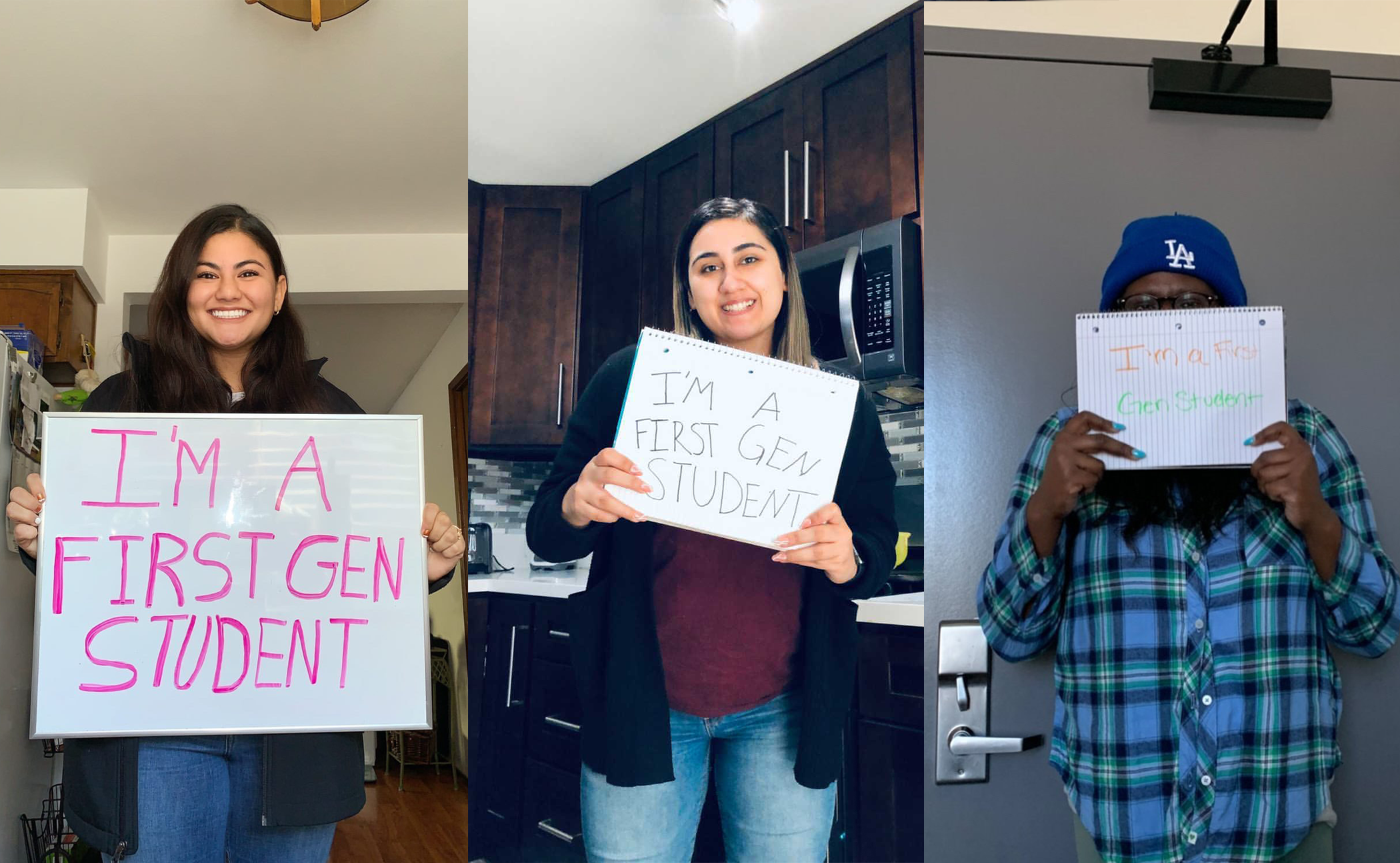Jacqueline Villanueva (left), Estephania Rodriguez (middle), Chelsee Lasekan (right) smiling for their achievements of being first generation students.
By Korrea Lewis, Staff Reporter
Being a first generation student can be quite an accomplishment but also a burden. Some might feel the pressure to be the first in their family to attend college. In the California State University system 32% are first generation students (pursuing a bachelor’s degree). At CSUDH, 55% of students say they are the first in their family to attend college, according to Amy Bentley-Smith, CSUDH director of communications.
“You can accomplish your dreams despite your background or lack of support. I am really proud to be a first generation student, “said Estephania Rodriguez, a major in human services and senior at CSUDH. Although Rodriguez recognizes that being a first generation student is a blessing, it can also be tough.
“My parents are immigrants so I’ve always felt that I’ve had to work 10 times harder and that I need to accomplish more than others in order to be taken seriously,” said Rodriguez.
Some first generation students go through some obstacles and struggles and the educational career becomes a hard journey, “feeling that I have no support, feeling lost, and a sense that I am not doing enough.” said Rodriguez.
Plenty of tips are given to first generation students. For example, sit in front of the classroom in class and join in on discussions, not ignoring registration and financial aid deadlines and procedures, building relationships with your professors by emailing them or visiting them during office hours, and seeking out a variety of mentors to guide you. Some other suggestions according to Arizona State University are asking questions, finding more first generation students who understand the struggle, communicating with your parents, and educating yourself on the resources that are available on campus.
Getting involved in school is good, joining clubs and organizations is a way to engage in college life. Also, asking questions is helpful and it helps to get the assistance that you need, whether it is academic or personal because the professors generally care about student’s challenges.
“Humbling, I’m grateful to be able to have this experience,” said Jacqueline Villanueva, a junior and business marketing major at CSUDH. “As a first generation college student, I have that extra reason why I should take good notes in classes.”
Villanueva, despite the achievement of being on a college campus, acknowledges the challenges and not so happy feelings that sometimes shadows her joy.
“There could be some guilt that comes with attending college as a first generation student. Missing events or maybe not talking to your mother as much because you have deadlines and finals coming up.” said Villanueva. “In the end, I know I am bettering myself and generations to come and that is something of great value to me.”
Chelsee Lasekan, a film major and senior at CSUDH feels the pressure of making her parents and other family members proud. Lasekan recognizes the stress of earning good grades and making her educational career a success story.
“ [I} Make sure to continue to focus on the bigger picture, which is to graduate with a bachelors in film and not let anything deprive me from getting to the finish line,” said Lasekan. But for Lasekan, just to be on this journey makes her feel successful rather than to be seen as a failure or disappointment.
For some first-generation students, the path is challenging because they feel like the spotlight or pressure is on them. Not everyone in their family made it this far. In CSUDH, 76% of students come from a household where they will be the first to hold a degree, something that has the power to influence future generations.

